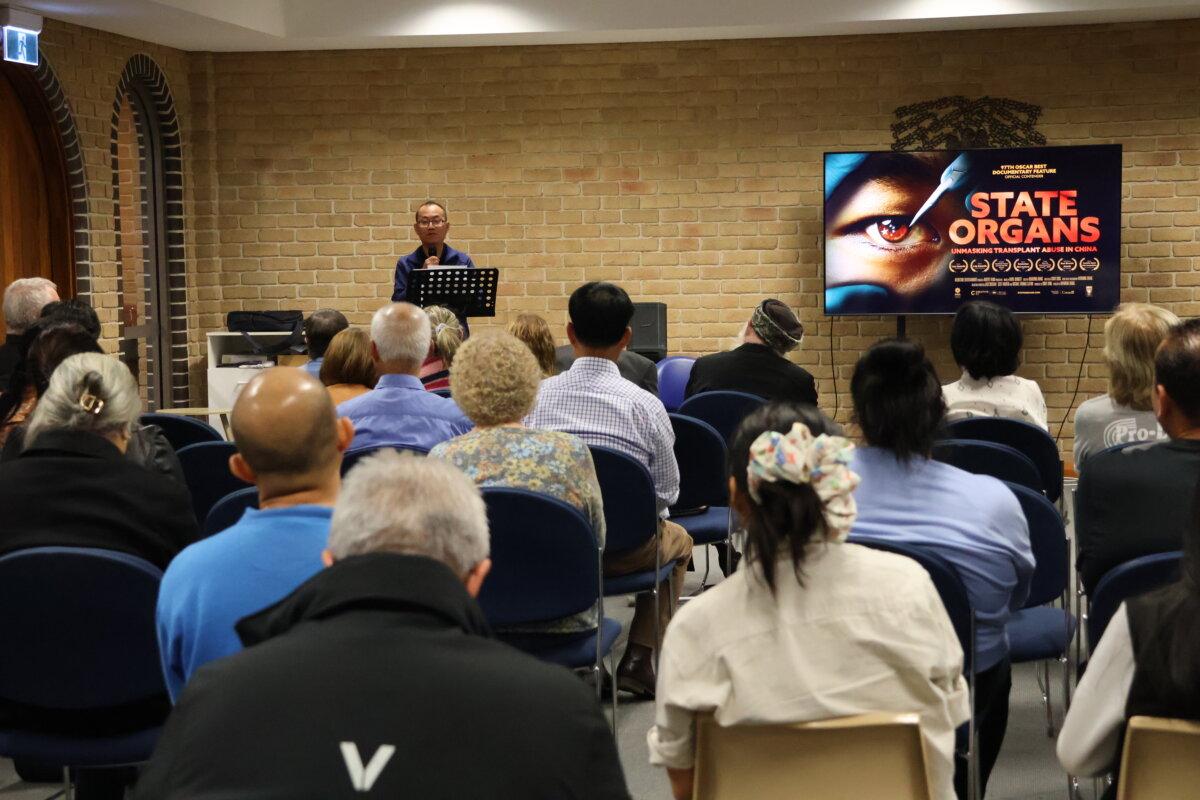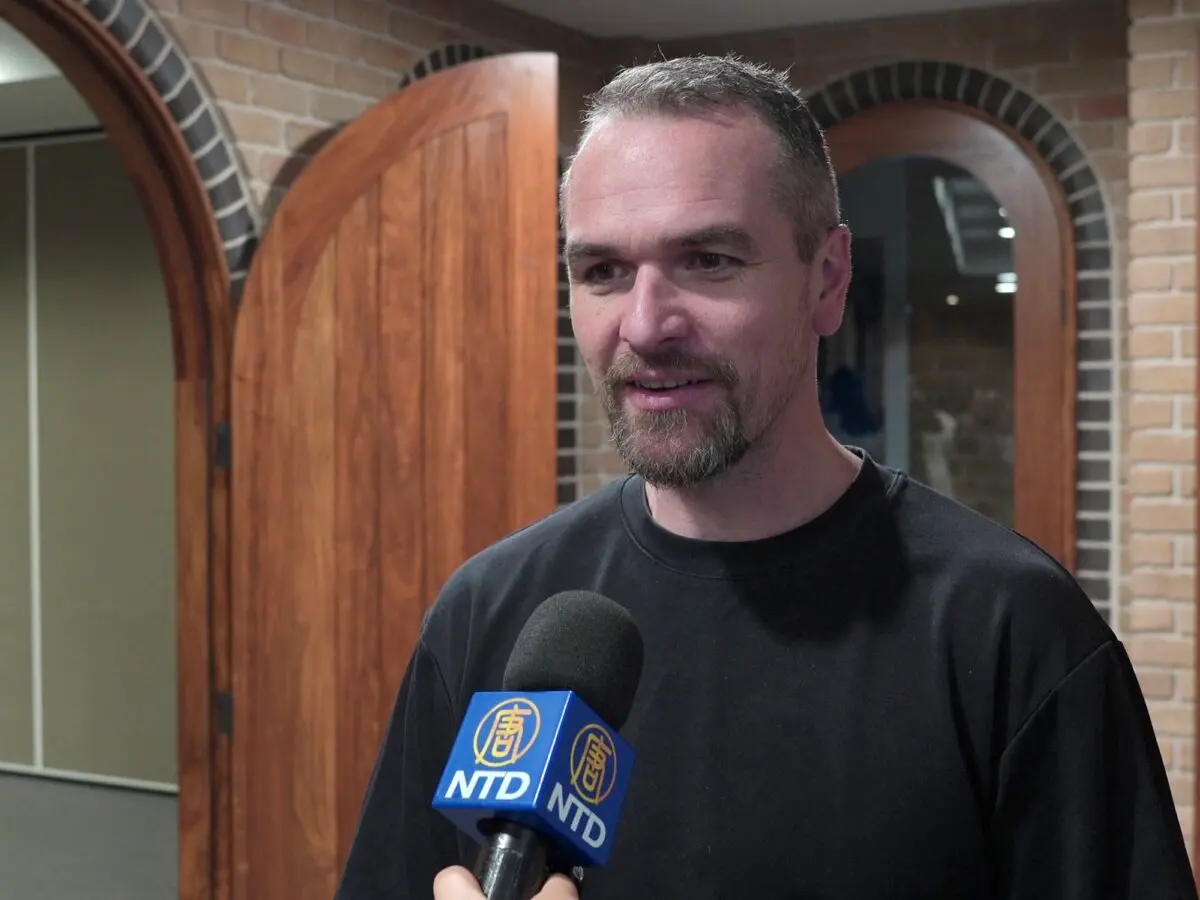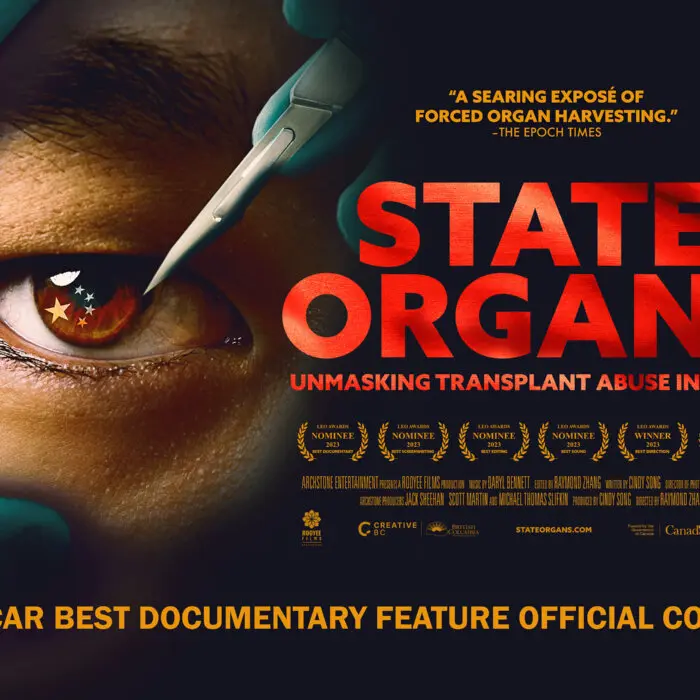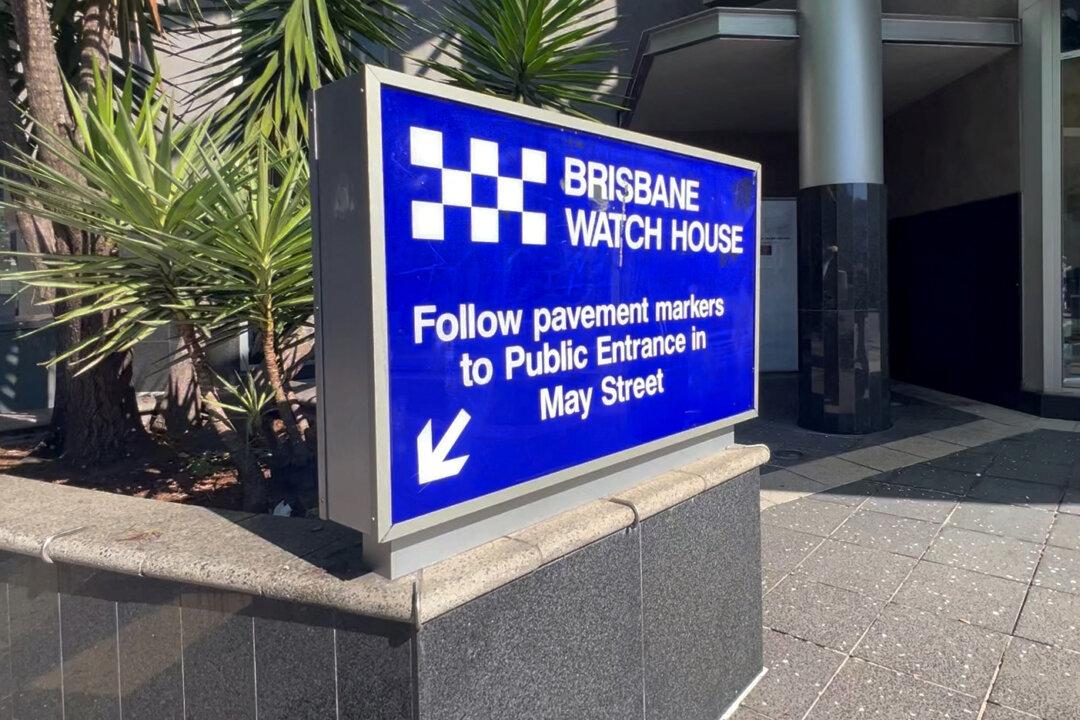In a quaint church hall in Western Sydney, Father Henry Adler dimmed the lights and pressed play on a documentary that, he says, fundamentally “reshaped his world views.”
State Organs lays bare the Chinese Communist Party’s (CCP) forced harvesting of organs from Falun Gong practitioners, a horror long smothered beneath layers of silence and censorship.
Yet for Adler, the realities are brutal and unflinching, and impossible to ignore.
“Why should the church be involved in raising awareness? As Christians, we have a moral duty to support victims of persecution,” he told parishioners on the evening of Nov. 22 at the Holy Family Catholic Church in Sydney’s south-west suburb of Ingleburn.
“I was reminded a number of times in this documentary that its been going on for a very long time, and it is indeed heartbreaking that the world is silent about it,” he said.
“The film’s revelation of systematic extermination ... will never stop shocking me and I think shocking all of us.”
The documentary explores the journey of two families whose children disappear under the CCP’s persecution against Falun Gong.
Their search leads them to uncover the state’s massive organ trafficking abuses targeting prisoners of conscience.
Father Adler, at first, doubted whether claims of forced organ harvesting were true, but his research convinced him otherwise.
“Jesus died for others. He told us that we should be able to do the same, so they are willing to sacrifice so that others would, in the future, live in a free world,” he said.
Witness Describes Torture at Hands of CCP
Falun Gong practitioner Samuel Liu gave a firsthand account of torture he suffered during two years in a forced labour camp, three and a half years in a prison, and two stints in brainwashing centres.Liu described being left in the sun until his head swelled, deprived of sleep for 20 days in winter, as guards pricked him with iron clips whenever he nodded off, and shocked with electric batons on sensitive areas of his body.
A former manager of an American multinational company, Liu said he had his head soaked in a bucket of water, and was purposely fed a diet to cause severe constipation.

Other tortures included being confined to bed for more than a month and forced tube feeding.
Liu said he was at times forced to undergo physical exams.
“At that time, I was also worried that I might be made to disappear,” he said.
Liu recounted that in 2011, he was taken while his wife was one month pregnant and under heavy stress, she later miscarried.
“I was lucky to survive the torture and came to Australia in early 2016, and I am very grateful for the help and support from the Australian government,” he said.
Audience Members Surprised at Scale of Organ Trafficking
Audience member Mike Hopwood said he had only ever heard of isolated organ-trafficking overseas, not systematic, state-run abuse involving large numbers of prisoners of conscience.“I’ve heard about it in some other countries, like dangers of going out in certain overseas places where you might get your drink spiked and organs being harvested, but I'd never heard about anything like this happening before,” he said.
The screening was the first time he had learned about the sheer number of people who had been taken and had their organs taken while alive.
“It’s really shocked me. I’m glad that I’ve been aware of this. It’s very eye-opening,” he said.

International Evidence Paints Bloody Picture of Organ Harvesting
In 2019, human rights lawyer Sir Geoffrey Nice set up the China Tribunal to investigate claims of forced organ harvesting in China.The tribunal studied numerous pieces of evidence, from transplant numbers to the medical testing of prisoners of conscience, as well as testimony from surgeons and prisoners.
By 2020, the tribunal had concluded “beyond reasonable doubt” that the CCP was using prisoners—particularly Falun Gong practitioners—as involuntary organ sources for many years.
The journal also reported that in 2005, Dr. Huang Jiefu, an Australian-trained transplant surgeon, said that apart from some traffic crash victims, organs in China were primarily taken from executed prisoners.







